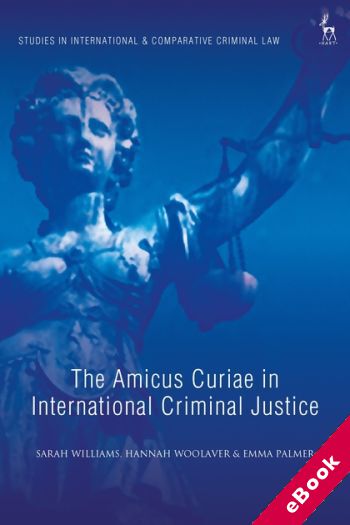
The device(s) you use to access the eBook content must be authorized with an Adobe ID before you download the product otherwise it will fail to register correctly.
For further information see https://www.wildy.com/ebook-formats
Once the order is confirmed an automated e-mail will be sent to you to allow you to download the eBook.
All eBooks are supplied firm sale and cannot be returned. If you believe there is a fault with your eBook then contact us on ebooks@wildy.com and we will help in resolving the issue. This does not affect your statutory rights.
The amicus curiae - or friend of the court - is the main mechanism for actors other than the parties, including civil society actors and States, to participate directly in proceedings in international criminal tribunals. Yet increasing reliance on this mechanism raises a number of questions. Are amicus interventions consistent with the inherent structure and purpose of a criminal trial? What impact might they have on the efficiency of trials, fair trial rights and the quality of judicial decision-making? Do amici enhance the representation of different interests in international criminal proceedings? Are amicus submissions actually influencing judicial or other outcomes? Is there a trend towards 'non-traditional' uses of the amicus curiae, such as the amicus curiae prosecutor or amici as substitute defence counsel?
These questions suggest issues integral to the legitimacy of international criminal trials and institutions, namely: who is able to be represented in proceedings, which actors seek to intervene in trials and why, whether the amicus curiae is an appropriate avenue for certain types of submissions, and what responsibilities might amici hold. This important new book examines the practice of international criminal tribunals and offers suggestions for the role of the amicus curiae before such tribunals.